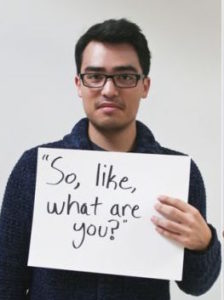 As universities in the US have started up a new academic year, there continues to be a good deal of discussion about the degree to which college students need to be protected from speech and actions which may offend. A recent article in the NY Times, “Campuses Cautiously Train Freshmen Against Subtle Insults,” outlines the efforts at a number of US universities to provide orientation to new students, with concepts such as “microaggressions,” comments which unintentionally express prejudicial views or stereotype others. Examples given from the article, taken from an orientation at Clark University, include: “Don’t ask an Asian student you don’t know for help on your math homework or randomly ask a black student if he plays basketball. Both questions make assumptions based on stereotypes. And don’t say ‘you guys.’ It could be interpreted as leaving out women.” The orientation at Clark mentions as well “environmental microaggressions” with the example given: all pictures of professors in the Chemistry Department lecture hall are of white men, causing non-whites and women to feel marginalized. The article continues:
As universities in the US have started up a new academic year, there continues to be a good deal of discussion about the degree to which college students need to be protected from speech and actions which may offend. A recent article in the NY Times, “Campuses Cautiously Train Freshmen Against Subtle Insults,” outlines the efforts at a number of US universities to provide orientation to new students, with concepts such as “microaggressions,” comments which unintentionally express prejudicial views or stereotype others. Examples given from the article, taken from an orientation at Clark University, include: “Don’t ask an Asian student you don’t know for help on your math homework or randomly ask a black student if he plays basketball. Both questions make assumptions based on stereotypes. And don’t say ‘you guys.’ It could be interpreted as leaving out women.” The orientation at Clark mentions as well “environmental microaggressions” with the example given: all pictures of professors in the Chemistry Department lecture hall are of white men, causing non-whites and women to feel marginalized. The article continues:
A nonverbal microaggression could be when a white woman clutches her purse as a black or Latino person approaches. Another subset of microaggression is known as the microinvalidation, which includes comments suggesting that race plays a minor role in life’s outcomes, like “Everyone can succeed in this society if they work hard enough.”
Also discussed in the article are other terms frequently heard in this context, namely “safe spaces”, where marginalized students can come together on campus, and “trigger warnings”, advance notice given to students of a topic about to be raised in a class which might upset some students. The orientations follow a series of incidents of racist speech and behavior at campuses last year, including the University of Missouri and the University of Wisconsin.
The Dean of Students at the University of Chicago provided a quite different perspective from Clark and other universities striving to limit students’ exposure to potentially harmful speech. In a letter to incoming students, he wrote: “Our commitment to academic freedom means that we do not support so-called trigger warnings, we do not cancel invited speakers because their topics might prove controversial, and we do not condone the creation of intellectual ‘safe spaces’ where individuals can retreat from ideas and perspectives at odds with their own.” This is a view which has been aired by others as well, particularly alumni and conservative commentators, some of whom are cited in the article. They view the idea of safe spaces and trigger warnings as coddling students, ill-preparing them for the real world, and cutting off free speech on campus.
A compelling counter-argument has been supplied by a Black graduate of the University of Chicago, writing on Vox, “I’m a black U Chicago graduate. Safe spaces got me through college,” in which he describes how important the Office of Multicultural Student Affairs was throughout his college career, providing a respite from the frequent discrimination he encountered. He wrote that he used this safe space “not to ‘hide from ideas and perspectives at odds with my own,’ but to heal from relentless hate and ignorance, to hear and be heard. My ideas were always challenged, but never my humanity. I mattered.” There is an interesting interview with him on NPR’s On the Media. Recently 150 U of Chicago professors signed an open letter in opposition to the welcoming letter from the Dean of Students.